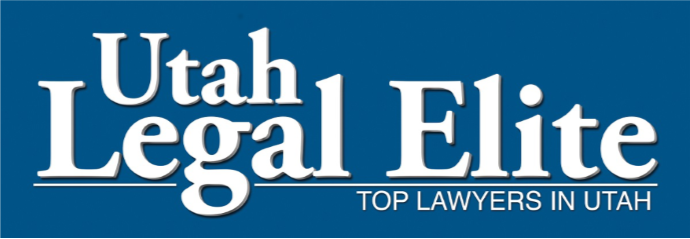Ley de seguros
LEY DE SEGUROS
ÁREA DE PRÁCTICA / ABOGADOS DE LEY DE SEGUROS DE UTAH
Richards Brandt atiende las necesidades legales de los clientes que requieren abogados con experiencia y conocimiento sobre las complejidades de la ley de seguros en Salt Lake City, Utah. Nuestros clientes buscan nuestra ayuda con respecto a cuestiones de cobertura para diferentes líneas de seguros, incluyendo las reclamaciones de parte primera y tercera.
ABOGADOS DE DERECHO DE SEGUROS EN UTAH
El bufete de abogados Richards Brandt Miller Nelson atiende las necesidades legales de empresas cuyos representantes buscan abogados con un alto nivel de experiencia y conocimiento en derecho de seguros. Muchas preguntas sobre seguros son esencialmente disputas contractuales. Nuestros clientes buscan nuestra ayuda con respecto a cuestiones de cobertura para diferentes líneas de seguro, incluidas las reclamaciones tanto de primera como de terceros.
Nuestros abogados de seguros han estado ejerciendo acumulativamente el derecho de seguros durante 100 años. Hemos manejado casos que involucran casi todos los tipos de asuntos relacionados con la ley de seguros. Nuestra educación legal continua en el área incluye un análisis en profundidad de la historia de los seguros y las leyes cambiantes que afectan las mejores prácticas en la industria de seguros. Con frecuencia asistimos a seminarios sobre temas relacionados con la cobertura de seguros y los impartimos, tales como:
Cobertura de primera y tercera parte
Las pólizas de seguro pueden ofrecer cobertura de primera persona y / o cobertura de terceros. La cobertura de primera parte se refiere a la protección del asegurado por pérdidas sufridas por la persona nombrada en la póliza. La cobertura de terceros también se denomina seguro de responsabilidad.
La cobertura de seguro de terceros generalmente se evoca cuando se ha iniciado un reclamo o una demanda contra el asegurado debido a lesiones o daños a la propiedad de un tercero.
Analizar los derechos y deberes de nuestros clientes según su política y evaluar los diferentes principios legales es una parte fundamental de la representación de nuestros clientes.
Disputas de seguros de propiedad de primera parte
Richards Brandt brinda asesoramiento y representación a sus clientes en asuntos complejos relacionados con disputas de cobertura de seguros, interpretación de pólizas y la aplicación de exclusiones de pólizas. Tenemos experiencia en brindar opiniones de cobertura y litigar asuntos de cobertura en nombre del asegurado.
Mejores prácticas de reclamos y reclamos de mala fe de seguros
Nuestra experiencia en ayudar a los clientes de seguros a lo largo del proceso de reclamos, representándolos en juicios, arbitrajes y mediaciones en todo el oeste de Intermountain es insuperable. Regularmente consultamos, litigamos e intentamos reclamos de mala fe para una variedad de productos de seguros.
Hay mucho en juego en las reclamaciones importantes, que a menudo superan un millón de dólares. Es importante que el abogado con el que trabaja tenga años de experiencia en derecho de seguros. Aunque un abogado puede tener experiencia en múltiples áreas, lo cual puede ser útil durante el curso normal de los negocios, una vez que surge una disputa de seguros, lo mejor para usted es encontrar el abogado con más experiencia que comprenda su industria y las leyes de seguros.
ACTUALIZACIONES RECIENTES DE LA LEY DE SEGUROS
ABOGADOS DE SEGUROS EN RICHARDS BRANDT EN SALT LAKE CITY, UTAH
Seguro de responsabilidad comercial estándar
La cobertura de responsabilidad comercial o responsabilidad general comercial es una póliza de seguro estándar emitida a las empresas para protegerlas contra reclamaciones que involucren lesiones corporales / daños a la propiedad y lesiones personales / publicitarias. Estos reclamos pueden ocurrir en o en el lugar de negocios de la empresa, durante las operaciones, como resultado del uso de un producto, o un reclamo puede involucrar algún tipo de responsabilidad publicitaria. Cada uno de estos tipos de reclamos requiere un conocimiento especializado de diferentes aspectos del derecho.
Las organizaciones con y sin fines de lucro enfrentan un riesgo significativo a lo largo de la vida de una empresa. Trabajar con un abogado para evaluar su cobertura es un paso fundamental en un buen plan de gestión de riesgos. Prepararse para el reclamo inevitable antes de que suceda brinda a todas las organizaciones la tranquilidad y la confianza de que han protegido su negocio y sus medios de vida.
Defectos de construcción
Nuestros abogados de grupo de la industria de la construcción han trabajado exclusivamente para defender la industria de la construcción durante décadas. La cobertura de seguros y las reclamaciones de seguros son una realidad durante todas las etapas de un proyecto de construcción, independientemente del tamaño. Haga clic aquí para conocer a nuestros abogados en el Grupo de la Industria de la Construcción.
Acuerdos de indemnización
Nuestros clientes comerciales requieren rutinariamente que otras partes de la industria los indemnicen y los agreguen como asegurados adicionales. Al transferir el riesgo, una parte (el indemnizador) se compromete a asumir la responsabilidad de otra (el indemnizado).
Los tres tipos de cláusulas de indemnización incluyen riesgo amplio, intermedio o limitado. Es importante hablar con un abogado sobre el tipo de indemnización que debe aceptar y en qué situación debe hacerse cumplir. Los reclamos por negligencia son complejos y, a menudo, involucran a múltiples partes, su abogado defenderá su organización y su trabajo.
Defensa de seguros en Salt Lake City, Utah
Richards Brandt representa a las compañías de seguros y sus asegurados. La defensa de seguros es un área especializada del derecho que requiere un profundo conocimiento y experiencia. Tenemos una sólida reputación y una larga trayectoria de especialización en la industria de defensa de los seguros. Nuestros clientes incluyen muchas de las compañías de seguros más grandes de EE. UU.
Sabemos cómo examinar en detalle las pólizas de automóviles y las pólizas de camiones comerciales. Hemos representado a aseguradoras en litigios de mala fe sobre seguros y podemos asesorar a su empresa sobre cuestiones relacionadas con ERISA. Brindamos asesoría con respecto a litigios de seguros que están siendo considerados por otros bufetes de abogados. Nuestra gama de experiencia abarca una amplia variedad de categorías de seguros, que incluyen las siguientes:
- Seguro de auto
- Seguro para propietarios de casas
- Seguro de responsabilidad profesional
- Seguro médico y por discapacidad o planes de prestaciones sociales autofinanciados
- Seguro de responsabilidad civil general comercial
Para obtener información sobre cómo podemos satisfacer sus necesidades legales relacionadas con el seguro, la asegurabilidad o la cobertura de seguro, contáctenos por teléfono o correo electrónico.
Se recomienda a las aseguradoras, empresas y asegurados privados del área de Salt Lake City que llamen o envíen un correo electrónico a Richards Brandt para programar una consulta con uno de nuestros abogados. Servimos a clientes en asuntos de derecho de seguros en todo el estado de Utah y el oeste.
FREQUENTLY ASKED QUESTIONS (FAQS)
BUSINESS TRANSACTIONS & CORPORATE GOVERNANCE / FEATURED FAQS
P: ¿Es una LLC o una corporación adecuada para mi negocio?
Answered by:
A: To decide which entity is right for you, we look at: liability, taxation, and maintenance. Both corporations and LLC’s have limited personal liability—this means that owners are usually not responsible for business debts. However, corporations and LLC’s are taxed very differently—corporations are classified as a separate taxable entity, whereas LLC’s are typically taxed as a pass-through entity (unless you choose otherwise). And corporations and LLC’s have different levels of maintenance—LLC’s have fewer reporting requirements and can operate solely with members acting as the managers. Conversely, corporations are required to hold certain annual meetings, keep certain records, and appoint boards and officers to manage the company for the stockholders. Every situation is unique so we recommend that you consult with an attorney in making your decision. Contact our firm, Richards Brandt, if we can help you decide which entity is right for you.
P: ¿Es una LLC o una corporación adecuada para mi negocio?
Answered by:
A: To decide which entity is right for you, we look at: liability, taxation, and maintenance. Both corporations and LLC’s have limited personal liability—this means that owners are usually not responsible for business debts. However, corporations and LLC’s are taxed very differently—corporations are classified as a separate taxable entity, whereas LLC’s are typically taxed as a pass-through entity (unless you choose otherwise). And corporations and LLC’s have different levels of maintenance—LLC’s have fewer reporting requirements and can operate solely with members acting as the managers. Conversely, corporations are required to hold certain annual meetings, keep certain records, and appoint boards and officers to manage the company for the stockholders. Every situation is unique so we recommend that you consult with an attorney in making your decision. Contact our firm, Richards Brandt, if we can help you decide which entity is right for you.
P: ¿Es una LLC o una corporación adecuada para mi negocio?
Answered by:
A: To decide which entity is right for you, we look at: liability, taxation, and maintenance. Both corporations and LLC’s have limited personal liability—this means that owners are usually not responsible for business debts. However, corporations and LLC’s are taxed very differently—corporations are classified as a separate taxable entity, whereas LLC’s are typically taxed as a pass-through entity (unless you choose otherwise). And corporations and LLC’s have different levels of maintenance—LLC’s have fewer reporting requirements and can operate solely with members acting as the managers. Conversely, corporations are required to hold certain annual meetings, keep certain records, and appoint boards and officers to manage the company for the stockholders. Every situation is unique so we recommend that you consult with an attorney in making your decision. Contact our firm, Richards Brandt, if we can help you decide which entity is right for you.
BUSINESS TRANSACTIONS & CORPORATE GOVERNANCE – CASE STUDIES
Utah Manufacturing Company Needed Employment Contracts For Key Staffers
Utah Construction Company Needed Planning For Business Growth & Protection
Utah Family Enterprise Needed Guidance and Representation to Sell Business
REVIEWS
Gary Johnson Receives G. Duffield Smith Outstanding Publication Award
August 2018
Gary Johnson has been selected as this year’s DRI recipient of the G. Duffield Smith Outstanding Publication Award. This award honors the author of the most outstanding defense related article published in For The Defense or In-House Defense Quarterly in 2017. His article «Planning the Future: Blockchain Technology and the Insurance Industry published in the In-House Defense Quarterly Fall 2017 issue, has achieved this highest standard.
The award will be presented at «A Celebration of Leadership» at the 2018 DRI Annual Meeting in San Francisco, California.
Richards Brandt congratulates Gary on his remarkable achievement.
Read article here: https://www.richardsbrandt.com/wp-content/uploads/2017/10/16J1065-GLJ-BLOCKCHAIN-TECHNOLOGY_.pdf
Growing Use of Blockchain in the Insurance Industry
Gary L. Johnson
October 2017
Gary Johnson’s new article, Blockchain Technology and the Insurance Industry, published in the most recent issue of In-House Defense Quarterly, provides an in depth overview of the growing use of blockchain technology in the insurance industry, including discussions of security, privacy and smart contracts. Read more
2016 Yancey Memorial Award
Gary L. Johnson
August 2016

The International Association of Defense Counsel announced at their annual meeting that RBMN’s litigation practice chair, Gary L. Johnson, was the recipient of the 2016 Yancey Memorial Award. This award is bestowed annually on the author of the best article published in The Defense Counsel Journal in the previous year. Gary’s winning article is Proving the Negative: On the Admissibility of the Lack of Prior Accidents in a Products Liability Case. The Yancey Memorial Award, instituted in 1963, honors George W. Yancey, former president of the IADC and founder of the Defense Counsel Journal.
Subrogation Law
With tens, or even hundreds of thousands of dollars on the line, subrogation actions are bitterly fought and hard won. Whether you are the plaintiff or the defendant, subrogation claims are not to be taken lightly. The more you know and the more experience you have on your legal team, the better off you’ll be in the courtroom.
Attorneys with the law firm of Richards Brandt Miller Nelson have been handling subrogation claims for decades. We represent both insurance carriers and alleged at-fault parties — plaintiffs and defendants — so we have a vast amount of experience with every aspect of subrogation law.
What is Subrogation?
Subrogation is the assumption by a third party (as a second creditor or an insurance company) of another’s legal right to collect a debt or damages.
Subrogation typically applies to cases involving insurance carriers or business contracts with indemnification provisions. For example, when there is an automobile accident in which property is damaged and injuries are incurred, there is often a period of time where the insurance carrier runs an investigation to determine who was at fault. The injured party can’t wait for the investigation to be over to receive medical attention or to have their car repaired, so the insurance carrier will step in and pay the medical and auto repair/replacement bills. If another party is determined to be at fault in the accident, the insurance carrier can then attempt to recover from that party. In other words, when the insurance company covered the damages for its insured, it assumed the right to collect damages from the at-fault party. That re-assignment of rights is subrogation.
Why Do I Need Legal Representation?
If you are an insurance carrier pursuing a subrogation claim, you need experienced counsel to make sure you have standing to pursue the claim and that your subrogation rights have not been compromised, such as through a settlement with a waiver of subrogation. If you are being sued by an insurance carrier who claims that you’re at-fault in an accident, you will need experienced counsel to determine whether the carrier has standing to pursue the claim. Whichever side you are on, you need a knowledgeable, experienced attorney to step in as soon as a loss is incurred. Laws vary from state to state, that’s why it’s important to hire a firm that’s familiar with Utah subrogation laws to help with your claim.
For knowledgeable, experienced legal help in a Utah subrogation action, contact the law firm of Richards Brandt Miller Nelson. We have been handling subrogation claims for decades and, whether you’re the plaintiff or defendant, we will use that experience to help you reach the best possible result in your case.
UIM Coverage Under Automobile & Umbrella Policy
February 2015
Kingston v. State Farm
http://www.utcourts.gov/opinions/appopin/kingston150205.pdf
The Court of Appeals affirms the district court’s grant of summary judgment to State Farm on a question of UIM coverage under an automobile policy and a separate umbrella policy.
 The substitution of a vehicle and an automatic renewal of a policy do not constitute «new policies» which trigger a renewed obligation to secure an insured’s consent to lower UIM limits. The insured’s initial waiver carries forward. An umbrella policy is not an automobile policy and subject to the same requirements of a policy for automobile coverage. Also, the insured was not entitled to coverage under the umbrella policy because the automobile policy did not contain sufficient coverage for UIM benefits to trigger the umbrella policy.
The substitution of a vehicle and an automatic renewal of a policy do not constitute «new policies» which trigger a renewed obligation to secure an insured’s consent to lower UIM limits. The insured’s initial waiver carries forward. An umbrella policy is not an automobile policy and subject to the same requirements of a policy for automobile coverage. Also, the insured was not entitled to coverage under the umbrella policy because the automobile policy did not contain sufficient coverage for UIM benefits to trigger the umbrella policy.
The substitution of a vehicle and an automatic renewal of a policy do not constitute «new policies» which trigger a renewed obligation to secure an insured’s consent to lower UIM limits. The insured’s initial waiver carries forward. An umbrella policy is not an automobile policy and subject to the same requirements of a policy for automobile coverage. Also, the insured was not entitled to coverage under the umbrella policy because the automobile policy did not contain sufficient coverage for UIM benefits to trigger the umbrella policy.
Immigration Issues and Personal Injury Defense

Tanya N. Lewis Peters
February 2013
Regardless of the political issues currently swirling around immigration reform, it is important to have a grasp of basic immigration law principles when defending personal injury cases.
A few recent cases are illustrative of the effects that an undocumented worker’s status can have on claims of personal injury, plaintiff employment, or similar claims.
Hoffman v. NLRB, 122 S.Ct. 1275 (2002). In this case, the employer petitioned for review of, and the National Labor Relations Board (NLRB) cross-applied for enforcement of, an NLRB order awarding an undocumented worker backpay from date of his illegal termination until the employer discovered he was unauthorized to work. A panel of the Court of Appeals for the District of Columbia Circuit ordered enforcement. Following grant of a petition for rehearing en banc, the Court of Appeals again granted enforcement. On appeal, the U.S. Supreme Court, Chief Justice Rehnquist, held that federal immigration policy foreclosed the NLRB from awarding backpay to an undocumented worker who had never been legally authorized to work in the United States.
Madeira v. Affordable Housing Foundation, 315 F.Supp.2d 504 (S.D. New York 2004). Here, an injured undocumented worker’s status did not prevent him from recovering compensatory damages for defendants’ violation of New York’s Scaffold Law. His undocumented immigrant status was relevant to determining whether lost wages were appropriate and how much should be awarded.
Silva v. Wilcox, 223 P.3d 127 (Colo. Ct. App. 2009). Here, to the extent that a defendant is able to establish that a plaintiff immigrant is not authorized to be in the United States and has secured employment by violating the law or is in violation of the law in some other particular manner related to such employment, so that the plaintiff is unlikely to remain in this country throughout the period of claimed lost future income, the jury should be provided that information in determining whether to award damages for lost future wages.
During discovery, an attorney may wish to direct written discovery to the plaintiff that asks about citizenship and immigration status. During the deposition of a plaintiff believed to be an undocumented immigrant, potential questions to ask include: Are you a U.S. Citizen? Where were you born? What is your immigration status? Are you legally authorized to work in the U.S.? If so, how is that documented? Have you ever applied for Medicare or Medicaid? (Don’t assume they haven’t – a Medicare audit last year revealed that people living in the U.S. illegally had collected over $120 million in Medicare benefits as of 2012. This could trigger Medicare Secondary Payer Act issues in the future.)
You can also take the deposition of the employer. Always do this as a 30(b)(6), and always serve the notice as a Notice of Deposition Duces Tecum. You can also subpoena the documents beforehand using Rule 45. Ask them to provide a complete employee file, including hire documents. Define “hire documents” as the employment application, I-9 form, and any copies of documents inspected in conjunction with the I-9 form. (This is, of course, in addition to any wage loss documents you want to obtain, such as W2s, W4s, payroll information, etc.)
Using best practices in the handling and workup of these cases can minimize carrier/defendant exposure by putting you in the best position for pretrial motions, including motions in limine.
Of course, this raises the issue of what to do when defending a case and your client (defendant) is undocumented. For example, this problem arises when a driver hired by an employer turns out to be working illegally, and then causes an automobile accident while in the course and scope of his/her employment. First, try to exclude the defendant’s immigration status under Rule 401. Second, TXI Transportation v. Hughes, 306 S.W.3d 230 (Texas 2010) is extremely helpful. It held that neither the illegal immigrant status of a gravel truck driver, nor his use of a fake Social Security number to obtain his commercial driver’s license, was relevant to a negligent entrustment or hiring claim against the employer. It also held that the illegal immigrant’s status was inadmissible to impeach the driver’s testimony, and that erroneous admission of evidence relating to the driver’s immigration status was not harmless.










Gary Johnson Receives G. Duffield Smith Outstanding Publication Award
Growing Use of Blockchain in the Insurance Industry
2016 Yancey Memorial Award